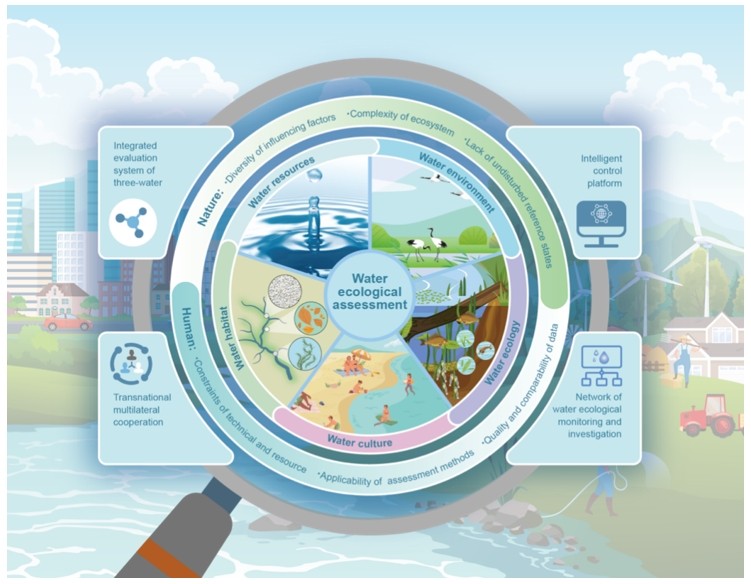Reevaluating Aquatic Ecosystems: A Global Perspective on Water Ecological Assessments
As of mid-2025, the importance of comprehensive water ecological evaluations has become increasingly evident in the realm of environmental management. These assessments serve as critical tools for understanding the health and functionality of aquatic environments worldwide, guiding policy decisions, and shaping sustainable water resource strategies. This article offers a fresh perspective on the historical development, current methodologies, and future challenges associated with water ecological assessments across diverse regions and organizations.
The Critical Role and Complexities of Water Ecological Evaluations
Water ecological assessments are vital for determining the status and classification of aquatic ecosystems, providing essential insights for ecological restoration and water quality management. They influence economic planning within watersheds, industrial development, and infrastructure design, making them indispensable in contemporary environmental governance. However, the inherent complexity of aquatic systems-characterized by diverse biological communities, physical habitats, and chemical processes-poses significant hurdles to accurate evaluation.
Different aquatic ecosystems possess unique structural and functional attributes, shaped by their natural conditions and human influences. While assessments must account for these variations, establishing standardized indicators and methodologies remains crucial. Consistent evaluation criteria enable policymakers and scientists to compare ecosystem health across regions, fostering more effective conservation strategies and sustainable water use practices.
Furthermore, the outcomes of these assessments directly inform recommendations for ecological protection, pollution control, and resource management, emphasizing their strategic importance in achieving long-term environmental sustainability.
Global Initiatives and Methodological Advances in Water Ecological Assessment
Research and practical applications of water ecological assessments have been extensively documented across multiple international platforms, including efforts led by the United States, the European Union, the United Nations, China, Brazil, and India. A key to successful evaluation lies in developing a robust, multi-tiered indicator system that integrates various ecological parameters-from biological diversity and habitat quality to water chemistry and resource availability.
Over recent decades, China has emerged as a leader in refining water ecological assessment techniques, especially within the Yangtze River Basin. The Chinese approach emphasizes regional adaptability and incorporates distinctive national characteristics, focusing on aquatic organisms, habitat integrity, water quality, and resource sustainability. This comprehensive framework exemplifies how tailored assessment models can enhance ecological monitoring and management efforts.
Future Directions and Global Significance of Water Ecological Assessments
The strategic implementation of water ecological evaluations holds immense promise for advancing ecological civilization initiatives and ensuring the resilience of aquatic ecosystems. Moving forward, assessments should evolve towards integrated management systems that encompass water resources, environmental quality, and ecological health holistically. Such approaches will facilitate more precise interventions and foster international cooperation in water conservation efforts.
China’s pioneering practices in this domain offer valuable lessons for the global community, demonstrating how scientific rigor and regional customization can lead to more effective ecological stewardship. As the world faces increasing pressures from climate change, urbanization, and pollution, the role of standardized, innovative, and internationally aligned water ecological assessments will become ever more critical. These efforts will underpin sustainable water use, safeguard ecological integrity, and promote global ecological security.
Looking Ahead: The Path to Sustainable Water Management
As the field advances, future assessments must integrate cutting-edge technologies such as remote sensing, artificial intelligence, and big data analytics to enhance accuracy and predictive capabilities. Strengthening international collaboration and knowledge exchange will be essential to harmonize assessment standards and share best practices. Ultimately, fostering a global culture of ecological awareness and responsibility will be key to preserving aquatic ecosystems for generations to come.
For further insights, refer to the detailed study published in Water & Ecology (DOI: 10.1016/j.wateco.2025.100002), which provides an in-depth analysis of current methodologies, case studies, and future prospects in water ecological assessment.
About the Journal: Water & Ecology is dedicated to pioneering innovative solutions that bridge scientific research and practical application, fostering sustainable environmental practices worldwide.

